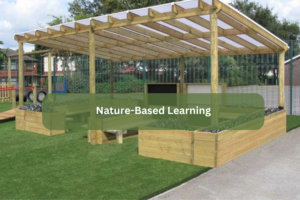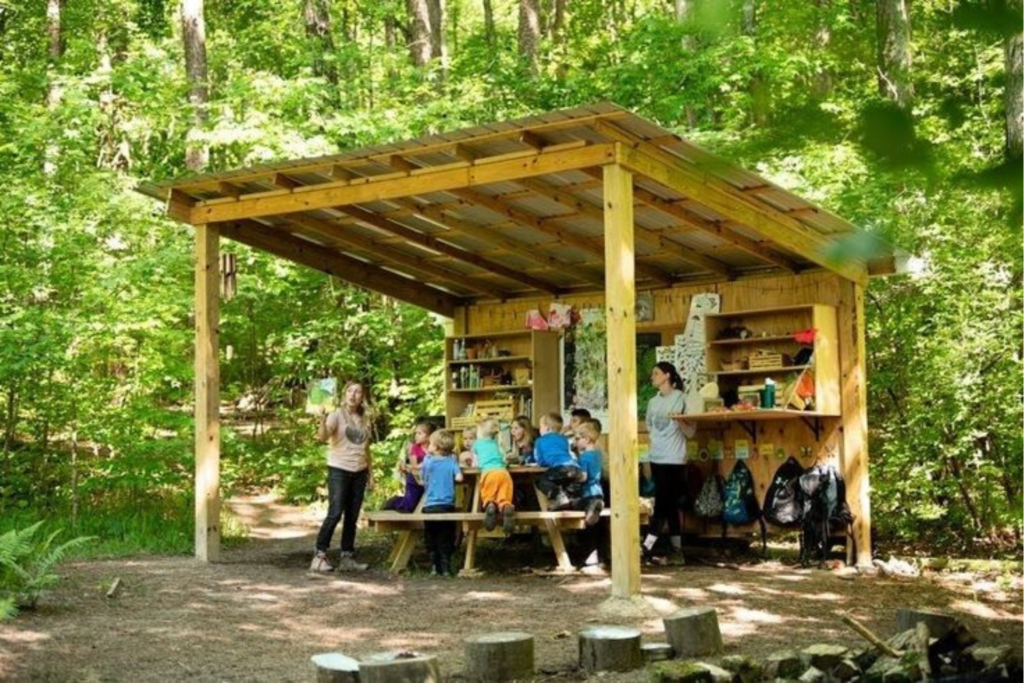Nature-Based Learning Programs have been developed as a transformative method of education, focusing on the natural environment as a medium of children’s development. In this respect, incorporating outdoor spaces into the curriculum will help develop creativity, resilience, and problem-solving skills. Children learn about their surroundings through hands-on experiences, thus improving academic and life skills. Initiatives such as the Natural Start Alliance are supported by educators to create meaningful experiences. Despite challenges, such programs cultivate a harmonious balance between learning and environmental awareness and lay the ground for holistic education that would nourish not only the mind but also the body and soul, attuned to nature.
Nature-Based Learning Programs: A Harmonious Approach to Early Childhood Education
In recent years, Nature-Based Learning Programs have emerged as a new concept in education. These programs combine early learning with an opportunity to interact with nature, so they encourage curiosity and creativity in children. Rooted in environmental education, it fosters a deeper understanding of the natural world and makes early childhood experiences enriching and harmonious.
The philosophy of learning in harmony requires that naturalistic methods become integrated into education. Children are fostered by direct activities where they explore and learn from the surroundings. Such an approach makes learning both academically enhanced and helps instill important life skills. Resilience, adaptability, and an enduring connection with their environment characterize the nature-based early interventions with young learners.
Nature-Based Learning Programs: Bridging Development, Awareness, and Real-World Applications
Nature-Based Learning Programs are an essential tool in the development of cognitive and emotional growth in children. Such programs immerse young learners in outdoor learning environments that improve problem-solving, creativity, and emotional resilience. Activities in nature preschools offer necessary learning opportunities that help in holistic child development and lay a foundation for lifelong skills and a deeper connection to the world around them.
Hands-on experiences in nature-based education make children environmentally aware. By being involved with their surroundings, they learn to be responsible and sustainable. Whether it is planting trees or studying ecosystems, the children associate learning and development with real-life situations. Such interaction not only creates respect for nature but also instills proactive attitudes toward environmental stewardship from a very young age.
It transforms education into an engaging experience by bridging academics with practical applications. Concepts in science, math, and literacy are well integrated with outdoor activities to make lessons relevant and impactful. Such immersive learning opportunities will equip children with skills they can apply in everyday life, thereby ensuring a balanced approach to academic success and personal growth through nature-based education.

Nature-Based Learning Programs: Promoting Physical Health, Social Skills, and Emotional Intelligence
Nature-Based Learning Programs have high physical health benefits, particularly in the case of nature-based early childhood education. Preschoolers benefit from active movement that enhances their overall well-being through outdoor activities. Natural environments foster exploration and play, which decrease stress levels and enhance mental health. Such learning experiences allow the children to get in touch with their environment, bringing about a deeper sense of responsibility towards nature while maintaining good physical health through environmental learning by doing.
Apart from physical health, Nature-Based Learning Programs are significant for social skills and emotional intelligence. The children are able to learn important social behaviors, such as teamwork, empathy, and communication, while participating in outdoor activities collaboratively. It also cultivates mindfulness practice among the children, enhancing their capacity to regulate their emotions and build resilience. Initiatives like the nature network encourage early childhood educators to support children in developing emotional awareness and strong social bonds, making the environment conducive to the growth of the whole child.
Nature-Based Learning Programs: Educators, Challenges, and the Path to Holistic Growth
Educators are at the core of Nature-Based Learning Programs, where children develop naturally. They are more than just teachers; they require creative ideas to make most use of the outdoor space for effective teaching. With support from initiatives like the Natural Start Alliance, educators create such immersive learning opportunities, balancing academic concepts with hands-on exploration and curiosities for growth in young minds.
Implementing Nature-Based Learning Programs is not without its challenges, including resource constraints, weather conditions, and curriculum integration. Solutions such as community partnerships, flexible outdoor space designs, and support from networks like Natural Start enable success. Addressing these challenges ensures children benefit from enriching experiences that balance education with a deep connection to nature.
The path toward holistic education is in the expansion of Nature-Based Learning Programs that place children’s development in natural settings at the forefront. Innovative teaching, problem-solving strategies, and inclusive outdoor environments combine to provide transformative learning opportunities. As educators and communities embrace this approach, the foundation for sustainable and meaningful education continues to strengthen.


